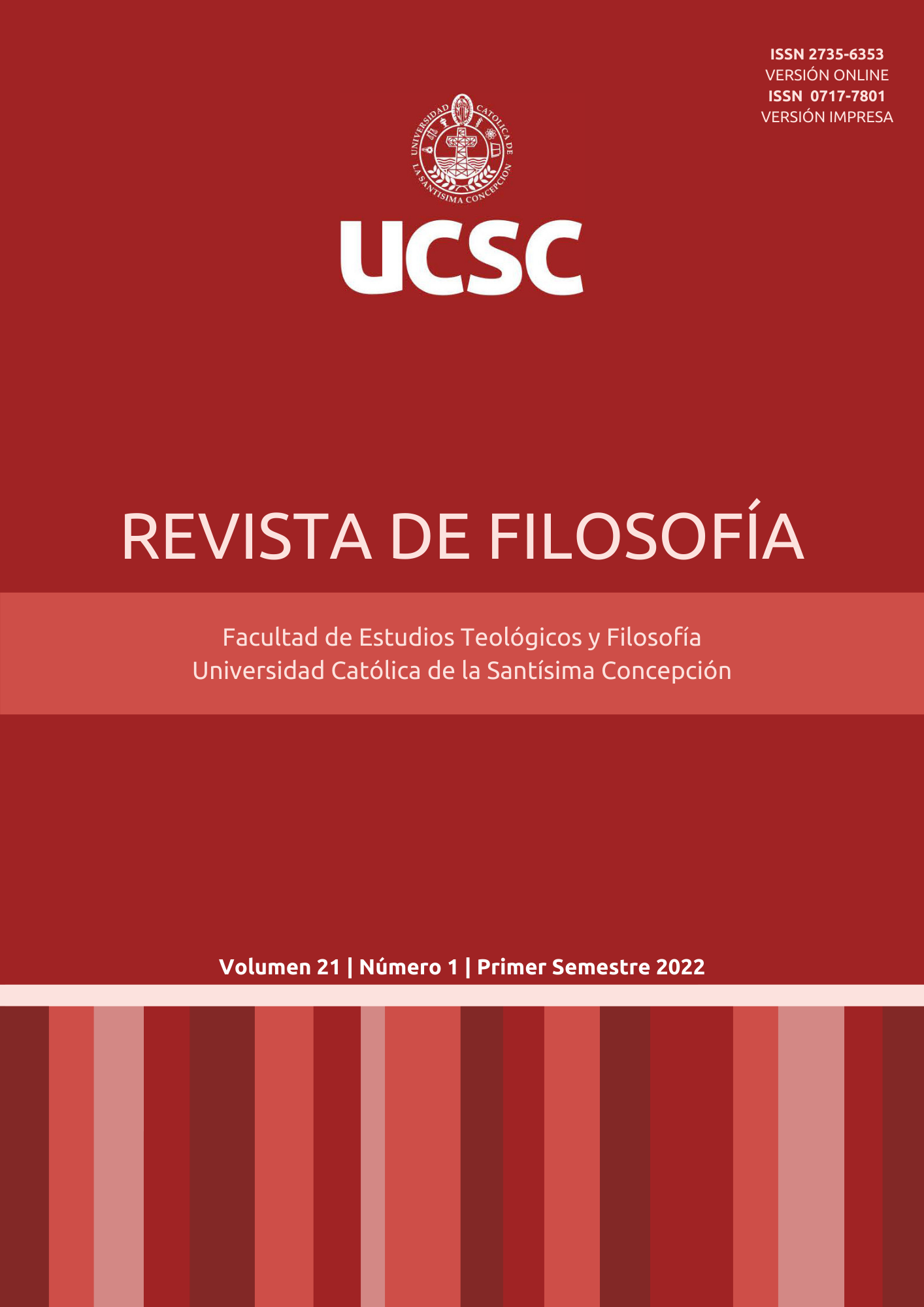El Apocalipsis del Leviatán: Escatología en el proyecto político de Thomas Hobbes
Contenido principal del artículo
Resumen
El objetivo principal de esta presentación es determinar el papel que jugó la escatología dentro del pensamiento político de Thomas Hobbes. Para determinar este rol, es fundamental dar cuenta del marco bibliográfico utilizado para esta presentación. Además, se analizará la relación de los conceptos de "muerte del Estado", "historia" y "contrato" y las principales consecuencias de Hobbes en el panorama político postapocalíptico. Finalmente, se realizará una interpretación del uso que hace Hobbes de la escatología respondiendo a la siguiente pregunta: ¿Es la escatología sólo un recurso retórico, o es esencial para toda la estructura de su sistema político?
Detalles del artículo
Sección

Esta obra está bajo una licencia internacional Creative Commons Atribución-NoComercial 4.0.
La Revista de Filosofía UCSC es de acceso abierto y no cobra por publicar en ella. Además, regula su política de Derechos de Autor y de acceso a sus archivos de acuerdo con la Licencia Pública Attribution-NonCommercial 4.0 International (CC BY-NC 4.0), por tanto, se permite compartir (reproducir y distribuir el material en cualquier medio o formato) y adaptar (modificar, transformar y crear a partir del material) siempre y cuando se de crédito adecuadamente, se incluya la cita con los datos correspondientes. Además, no está permitido utilizar el material con fines lucrativos.
Cómo citar
Referencias
Ball, B. W. (1975). Great Expectation, Eschatological thought in English Protestantism to 1660. E.J. Brill.
Borot, L. (2006). “History in Hobbes’s Thought”, Cambridge Companion to Hobbes, Tom Sorell edition. Cambridge University.
Capp, B. (1972), “The Millennium and Eschatology in England”, Past & Present 57, 156-162.
Capp, B. (2011), “Godly Rule and English Millenarianism”, The Intellectual Revolution of the Seventeenth Century, edited by Charles Webster, UK., Ed. Routledge.
Clark, A. (1898). Aubrey’s Brief Lives. The Clarendon.
Lametti, J. (2012), Historical Dictionary of Hobbes’s Philosophy. The Scarecrow Press.
Martinich, A.P. (1999), Hobbes, A Biography. Cambridge University.
McClure, C. (2011). Hell and Anxiety in Hobbes’s Leviathan, The Review of Politics, 73, 1-27.
Miller Lewis, J. (1976), Hobbes and the Blackloists: A Study in the Eschatology of the English Revolution, Dissertation, PhD Thesis on Philosophy, Harvard University, 1976. Harvard University Offsite Storage. http://id.lib.harvard.edu/alma/990038747600203941/catalog
Hobbes, T. (1994). The Correspondence. Clarendon.
Hobbes, T. (2012) Leviathan. Clarendon.
Hobbes, T. (2017), The Elements of Law Natural and Politic. Cambridge.
Pocock, J.G.A. (1989), Politics, Language, and Time: Essays on Political Thought and History. University of Chicago.
Schumann, K. (2000). Hobbes’s concept of history, Hobbes and History. Routledge.
Schwartz, J. (1985). “Hobbes & Two Kingdoms of God”, Polity 18 (1) (1985), 7-24.
Simendić, M. (2016). “Nature, Civility and Eschatology: Thomas Hobbes’s Progress in Three Acts”, FILOZOFIJA I DRUŠTVO XXVII (4) (2016): 894-915.
Springborg, P. (1975), “Leviathan and the Problem of Ecclesiastical Authority”, Political Theory 3. 289-303.
Tuck, R. (1992). The Civil Religion of Thomas Hobbes, Political Discourse in Early Modern Britain, Cambridge University Press, pp. 120-138.




